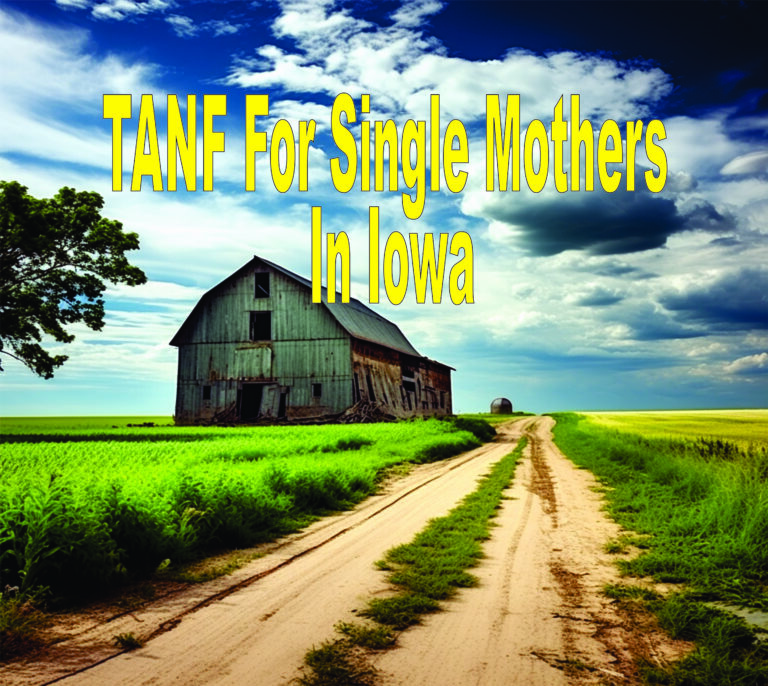Wisconsin TANF For Single Moms

Last Updated on May 22, 2024 by Kathy
If you are a low-income parent or pregnant woman living in Wisconsin, you may be eligible for temporary cash assistance through the state’s Temporary Assistance for Needy Families (TANF) or Wisconsin Works (W-2) program.
The W-2 program is an important safety net for families facing financial hardship. Whether you’re dealing with job loss, a medical emergency, or other unexpected expenses, TANF can help you cover your basic needs while you work to get back on your feet.
In this article, we’ll explore the benefits and services provided by the Wisconsin TANF program and the eligibility requirements and application process. We’ll also discuss other support programs available under the TANF umbrella, so you can get a comprehensive understanding of the resources that are available to you.
Understanding the Benefits and Services of the Wisconsin TANF Program
The Wisconsin Works is a work-based program that aims to help individuals become self-supportive while receiving monthly financial assistance. It is not an entitlement, but rather, the participant must work in exchange for cash assistance.
The W-2 cash assistance depends on the family size and countable income. A family of three without a current source of income is eligible to receive up to $653 monthly cash benefits.
W-2 help eligible adults to become equipped and job-ready by providing employment programs, vocational education and training, and social services programs. In addition, it also facilitates activities to help job seekers find a job and gain relevant work experience.
In addition, the W-2 program also helps needy families to look for decent housing and child care centers to enable the adults to participate further in work activities.

Eligibility Requirements for Wisconsin TANF
If you’re a parent in a low-income household and struggling to make ends meet, it’s important to understand the eligibility requirements for receiving temporary cash assistance through the Wisconsin TANF program.
To qualify for this public assistance, you must meet both categorical and financial eligibility criteria, including being a resident of Wisconsin, a U.S. citizen or legal alien, and experiencing economic hardship. Eligible households must also have at least one minor child (under the age of 19). Pregnant women, minor parents, and non-custodial parents are also qualified to avail of the benefits.
To determine eligibility, the state considers factors such as family size and household income, as well as any assets or resources. The table below provides an overview of the family income limit guidelines for families with children applying for TANF in Wisconsin.
| Household Size | Maximum Monthly Gross Income |
| 1 | $673 |
| 2 | $901 |
| 3 | $1,129 |
| 4 | $1,357 |
| 5 | $1,585 |
| 6 | $1,813 |
| 7 | $2,041 |
| 8 | $2,269 |
Applying for Wisconsin TANF Benefits
First, you must download the W-2 application form and gather all the necessary documents to support your claims. You can apply for Wisconsin TANF benefits either in person at your local W-2 agency or online through the ACCESS website.
Once your W-2 application is received, an eligibility worker will schedule you for an interactive interview through the ACCESS website or in person.

Required Documents for Wisconsin TANF Application
Gathering all the necessary documents for your Wisconsin TANF application can be overwhelming, but it’s crucial to ensure you have everything you need to increase your chances of approval. To be eligible for temporary cash assistance, here are the most common documents that the office will ask you to provide:
- Social security number
- Citizenship or non-citizenship status
- Photo-identification
- Birth certificate
- Medical records
- Marriage certificate
- School records
- Diploma
- Lease or mortgage papers
- Real estate property tax
- Unemployment benefits
- Veteran’s benefits
- Child support payment
- Insurance policies
- Trust funds
- Bank savings and checking account statements
- Income tax returns
These are just a few of the many documents your can prepare to help support your W-2 application. Here is the complete checklist of documents you must bring during the interview.
Other Support Program Under the Wisconsin TANF
You can take advantage of other support programs offered under Wisconsin’s TANF, such as Job Access Loans, Emergency Assistance, Transform Milwaukee Jobs, and Transitional Jobs.
Job Access Loans provide financial assistance to eligible families to address employment-related needs. Meanwhile, Emergency Assistance funds families with children (ren) in crisis situations.
The Transform Milwaukee Jobs assists low-income adults in Milwaukee County in transitioning into stable unsubsidized employment, and Transitional Jobs provides limited-term subsidized work to low-income adults. Additionally, Noncustodial Parent Services and Social Security Disability Insurance are available to those who qualify. These programs serve as safety net programs, assisting those in poverty and helping them become self-sufficient.
Frequently Asked Questions
What is the maximum amount of time a person can receive Wisconsin TANF benefits?
You can receive TANF benefits for a maximum of 60 months, but states can set shorter time limits. TANF is a federal program that provides temporary financial assistance to low-income families in need.
Can individuals who are not U.S. citizens receive Wisconsin TANF benefits?
Non-citizens may qualify for Wisconsin TANF benefits if they meet specific eligibility criteria, such as being a lawful permanent resident or refugee. However, undocumented immigrants are not eligible for TANF benefits.
Are there any limitations on how Wisconsin TANF benefits can be spent?
There are limitations on how TANF benefits can be spent, as they are intended to assist with basic needs such as food, housing, and clothing. Cash benefits cannot be used for gambling, alcohol, or illegal drugs.
What happens if a Wisconsin TANF recipient fails to comply with program requirements?
Failure to comply with program requirements, you may lose your Wisconsin TANF benefits. This can include not meeting work requirements or participating in required programs, as well as not reporting changes in income or household circumstances.
Conclusion
In conclusion, the Wisconsin TANF program can be a valuable resource as an aid to families needing financial assistance. TANF can help individuals achieve self-sufficiency and improve their overall quality of life by providing cash benefits, job training, and other support services.
By taking advantage of the resources available through TANF, you can take steps toward economic security for yourself and your family. Remember, the Wisconsin TANF program is here to help you when you need it most.






